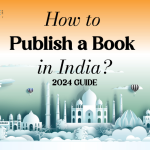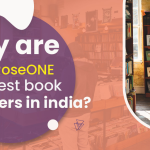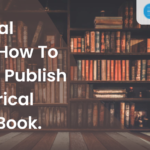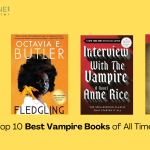Looking to publish a French Book? The French language, French français, is probably the world’s most important Romance language. French was the official language of more than 25 countries at the turn of the century. French is second only to English in terms of the number of countries where it is an official language.
It is also, along with English, the only language that is taught in every country on the planet. It has over a hundred million students and two million teachers. Indeed, the number of French speakers has more than tripled since 1945.
At the time of the French Revolution, 75% of French citizens did not speak French as their first language. Until the 1800s, French was a more widely spoken language in Holland and Germany than in some parts of France.
The French Academy was founded in 1635, and it was the first organisation to rule over a language. Most of the world’s major languages have had such governing bodies in place since their inception.
French is a Romance language (meaning it is primarily descended from Vulgar Latin) that belongs to the Gallo-Romance family. The history of a language is typically divided into two parts: “external history,” which describes the ethnic, political, social, technological, and other changes that affected the languages, and “internal history,” which describes the phonological and grammatical changes that the language underwent.
For centuries, French literature has been a source of national pride for the French people, as well as one of the most influential components of European literature. The Song of Roland, the first major work in a series of poems known as “chansons de geste,” is one of the earliest known examples of French literature.
Although vernacular literature in Italy eclipsed French literature in Europe in the 14th century, literature in France underwent a major creative evolution in the 16th century, and through the political and artistic programmes of the Ancien Régime, French literature came to dominate European letters in the 17th century.
Literature usually turns to musicals, ballads, and theatre plays – these are the highlights of France other than food, fashion, and exceptional architecture.
Aristotle and other theorists established the rules for writing classic literature. The rules were followed because they were rational, not because of tradition. They were less a hindrance than an expression of the great classic writers’ genius. The main rule was verisimilitude, or writing that appeared to be true and real. Structure and form were emphasised by verisimilitude. It resulted in universal themes and characters, and eventually, almost entirely psychological action.
Read: How to self-publish a book using BlueRoseONE DIY Platform.
In the 18th century, a new type of literature, Romantic rather than classic, emerged. A new interest in science, as well as a growing awareness of different manners and customs around the world, contributed to the shift. In addition, there was a new concern for a more accurate reproduction of reality than the artistic illusion of classic verisimilitude. The emphasis on emotionalism has grown. Romanticism was essentially subjective and antirational, but it pretended to be philosophical. The Romantic movement rebelled against society and fate.
At the end of the nineteenth century, the symbolist movement in literature reacted to Parnassianism, naturalism, and science. Symbolism attempted to restore poetry’s romantic sense of mystery.
A new generation of novelists devised personal solutions to the problem of living a meaningful life. For many writers, World War II confirmed the absurdity of human existence in a meaningless universe.
Disillusionment, cynicism, and experimentalism remained dominant characteristics of French literature in the decades following 1950. However, the manifestation of these characteristics varied.

Tips to Publish a French Book-
- Your manuscript is the most important part of your book.
Write your script and figure out what you’ll need. For example, if you write in English but want to target a French audience, have your script translated to help you reach your aim. You must ensure that the essence is not lost during the translation process. These services may be provided by French publishing houses or Global Publishing Houses. - Editing is your manuscript’s groomer.
Make care to thoroughly revise your manuscript because errors and loopholes will not be tolerated. If you are having it translated into French, make sure that all of the placements are perfect because the French language is divided into feminine and masculine of everything therefore it might transform the meaning of your story. - Gather as many ideas as possible for your cover page.
Having innovative ideas will help you get started even before you approach a publishing business. It also demonstrates your enthusiasm for your endeavour. - Conduct research on the publishing house you intend to utilise.
There are a million French Book Publishers, but you must consider which ones would suit you and your budget. Collect information about several French publishing houses that support and recognise the importance of your narrative. Reduce it to the top three. - Make contact with the ultimate publishing houses.
Have a discussion and learn how they work. Transparency is required, as are companies that will include you in the publication process. - Make your final decision and begin working on your desired project.
Get the whole author experience and hold your printed book in your hands at the end. - Do not rely on your publishing house for advertising and marketing.
Make your own strategy. It’s your work. Create a buzz on your platforms, give out sneak previews to pique people’s interest in what you’re going to post, and be patient. It takes time to become a bestselling author and have a bestselling book.
Create & Publish Your Book For Free
Sometimes in the process of writing it is easy for you to lose motivation for writing or you get stuck at a point – so, to inspire yourself here are few famous French novels that will help you get back on the track.
- Beauty and the Beast by Madame de Villeneuve – 1740
- The Book of the City of Ladies by Christine de Pizan – 1405
- The Flowers of Evil by Charles Baudelaire – 1857
- The Masterpiece by Emile Zola – 1886
- A Winter’s Promise by Christelle Dabos – 2013
- The List of My Desires by Grégoire Delacourt – 2012
Many people aspire to be authors, and success in the worldwide market is a significant achievement in and of itself.
Read: Difference between Proofreading & Editing? What do you need?
BlueroseONE assists emerging writers towards being noticed in both national and international markets. We publish in regional and worldwide languages and provide a variety of adaptable services in this regard.
















